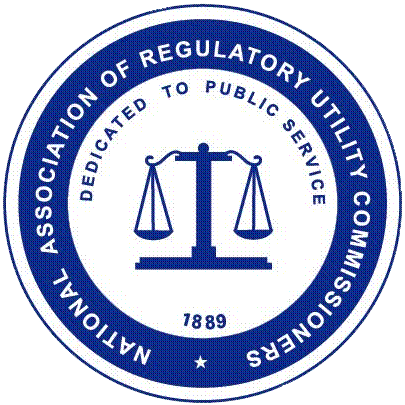New Reports Explore Economic Implications of the Energy Transition, Regulatory Mechanisms to Mitigate the Economic Impacts of Fossil Retirements

WASHINGTON — The National Association of Regulatory Utility Commissioners Center for Partnerships & Innovation today announced the release of two new reports through the NARUC-U.S. Department of Energy Carbon Capture, Utilization and Storage Partnership. The publications examine the economic implications of the energy transition and explore regulatory approaches for considering economic impacts in the retirement of fossil fueled power plants, focusing on coal generation.
The first report, Regulators’ Energy Transition Primer: Economic Impacts on Coal-Producing Communities, Environmental Justice Considerations, and Implications on Clean Energy Jobs, offers a background for NARUC members to understand how the transition from coal to low-carbon energy resources is affecting communities and workers. The primer provides further discussion into the environmental, climate and energy justice considerations of the transition, as well as an overview of current federal programs and funding available to support affected communities.
The ongoing trend of coal retirements has disproportionately affected the socioeconomic health of communities where power plants are located. For many public utility commissions, these impacts have led to important questions around the scope of PUCs’ statutory authority to analyze, consider and mitigate losses to host communities within their role as utility regulators. Due largely to variations in state legislative charges, commissions have taken different approaches to articulating what lies within the public interest. The Role of State Utility Regulators in a Just and Reasonable Energy Transition: Examining Regulatory Approaches to the Economic Impacts of Coal Retirements examines the authority of PUCs across the country to consider non-energy economic impacts beyond direct ratepayer effects. The report also summarizes approaches that PUCs, utilities and other stakeholders have used to mitigate the economic fallout of coal retirements, specifically.
“We expect several coal plants will retire in Wisconsin over the coming decades, so this is a particularly salient topic,” said Wisconsin Public Service Commissioner Ellen Nowak, vice chair of NARUC’s Subcommittee on Clean Coal and Carbon Management. “This report illustrates how commissions can consider mechanisms such as securitization, stakeholder engagement and collaboration with other local, state and federal agencies, to act in the public interest and play a role in relieving the economic burden of the retirements on energy workers and communities.”
“These complementary resources provide a holistic view of potential economic development considerations within commission decision-making, case study-style examples of concrete actions, and avenues for a range of support approaches for impacted communities,” said CPI Director Danielle Sass Byrnett. “As we observe more commissions thinking about incorporating energy equity and justice considerations into their decision-making, we expect these publications to be referenced frequently as foundational documents.”
The Role of State Utility Regulators in a Just and Reasonable Energy Transition: Examining Regulatory Approaches to the Economic Impacts of Coal Retirements was authored by CPI staff Kiera Zitelman and Jasmine McAdams and is available on NARUC’s website at bit.ly/JustandReasonable. Regulators’ Energy Transition Primer: Economic Impacts on Coal-Producing Communities, Environmental Justice Considerations, and Implications on Clean Energy Jobs was developed by BCS, LLC as a subcontractor to NARUC and is available at bit.ly/TransitionPrimer.
About NARUC
NARUC is a non-profit organization founded in 1889 whose members include the governmental agencies that are engaged in the regulation of utilities and carriers in the fifty states, the District of Columbia, Puerto Rico and the Virgin Islands. NARUC’s member agencies regulate telecommunications, energy, and water utilities. NARUC represents the interests of state public utility commissions before the three branches of the federal government.


